
Transkript
Drei Ratschläge an Dein 14jähriges Ich!
First thing I will say do whatever you want, no restrictions, do whatever you like, second I will say that discipline is very important, third respect your parents, your teachers.
Was steht auf Deiner Visitenkarte?
My name is Hassan Yusuf Mugne I’m a medical doctor I don’t have a business card yet.
Was ist das coolste an Deinem Job?
The coolest part of the job is having direct contact with people and they give you their confidence and then trust, that’s the best part one of the best part and the other part is when you see that you’re making a change in someone else life or your saving someone else life then that’s also the coolest part, I think.
Welche Einschränkungen bringt Dein Job mit sich?
I think one of the restrictions to work as a doctor in Austria is the language barrier, the language is very difficult. I mean, if your are younger age maybe it will be easy for you but the language in Uzbekistan one of the toughest will be the weather, for me the weather was very difficult because of the - 20, or minus -25 or above. In summer we had plus 50 or above, that was very challenging.
Worum geht es in Deinem Job?
My job is, currently or before I was working with MSF, so currently is direct contact with the patients giving consultation, making some laboratory analysis and supporting the patients and prescribing treatment. What we do in the neurology department we have a patients who come to us with different illness and what we have to do is that we have talk with the patient take the analysis and put the proper diagnosis. What we do is we send the laboratory the blood analysis and the we interpret it and tell, the patient what kind of disease he has. Sometimes we work in the stroke unit or the Intensive Care Unit. MSF was one of the bigger experience I ever had working in my medical profession, I was working in Uzbekistan a project which is about Tuberculosis, is epidemic and MSF was working in Uzbekistan for more than 10 years, I was working in a city which is almost of 46,000 people and I was the only doctor who was giving the care. You can imagine my mission was not just treating the patients but giving training to the nurses, giving training to the doctors and managing not only prescribing drugs but managing the whole region you can call it. We don’t stay only in the hospital we work in different, what do we call? Dots, or its small clinics just where the patients get the drugs, we work also in the hospitals, the government hospitals; we work with the Ministry of Health of Uzbekistan Doctors. So we make rounds and that was the main function of my job.
Wie sieht Dein Werdegang aus?
I was born in Somali and in 1990s we had a civil war in Somali we have to leave and immigrate outside of Somalia. I had the opportunity to go to a medical university in Ukraine and I gained my medical degree in Ukraine and post graduate of pediatrics Neonatology. Then I tried I have to give back the country and from something, then went back to Somalia and worked there in the hospital and I couldn’t accomplish what I should do because of the insecurity, then I have to come to Austria as a refugee asylum. When I was given permission to live in Austria I had the opportunity to attend to practice my medical profession at the same time I’m a person who’s dedicated to give back. I was thinking that there are people who are more in need than in … So I thought that maybe working with MSF will give me this opportunity, I decided to apply MSF to work with them. I was working with MSF a whole year in Uzbekistan and now since I came back, I’m attached to the Neurology Department in the Teaching Hospital in Vienna.
Ginge es auch ohne Deinem Werdegang?
The most important thing you should have the basics to do the job right? To do the job, you should have a medical degree and I think it’s not only having the medical degree you should be very much dedicated to what do you want to do. If you’re not convinced what you’re doing then the degree is only just a paper.
Mehr von Ärzte ohne Grenzen
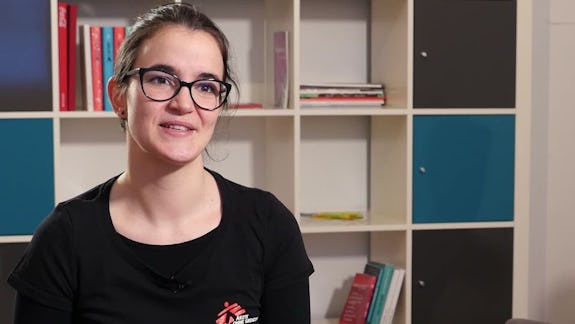
Maddalena Prinoth
"Zu sehen, was für einen Impact man haben kann, wenn man dann auftaucht" findet Maddalena Prinoth ziemlich cool an Ihrem Job als Fundraising Kampagnen Teambetreuerin. Wichtig für ihren Job ist einzig die Erfahrung "dass man schon mal auf Kampagnen mitgefahren ist und dass man lernt auf das Team zu schauen und nicht nur auf sich".
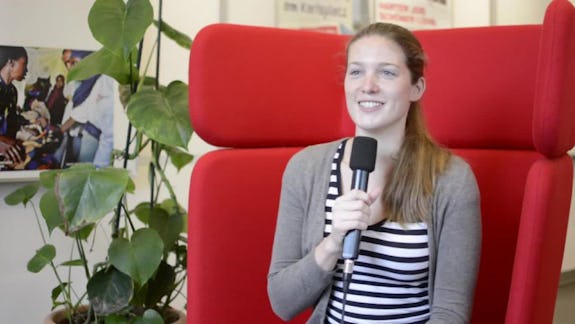
Elisa Louvet
“Ärzte ohne Grenzen arbeitet in Regionen die instabil sind und natürlich gibt es Sicherheitsrichtlinien, die ein bisschen nervig sind”, muss Elisa Louvet über ihren Job als Supply Logistikerin bei Ärzte ohne Grenzen zugeben. “Ich muss darauf aufpassen, dass alle kriegen was sie brauchen”, erzählt sie über ihren Beruf als Supply Logistikerin.
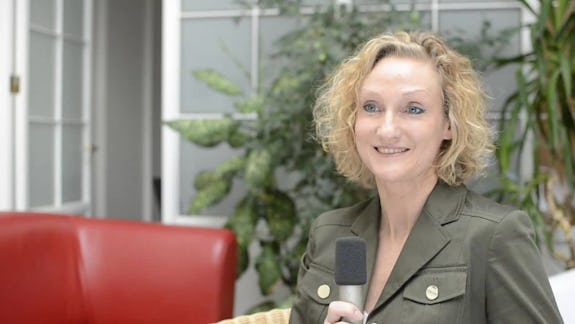
Maria Wagner
“Ich stehe für lebenslanges Lernen. Ich finde es ist notwendig, dass man sich weiterbewegt.” Maria Wagner arbeitete zehn Jahre als Krankenschwester, nebenbei studierte sie Politik und Krankenhausmanagement. Heute ist sie für MSF unterwegs: “Ich war in Haiti nach dem Erdbeben, im Jemen in einer Waffenstillstandszeit und in Syrien im Bürgerkrieg.”
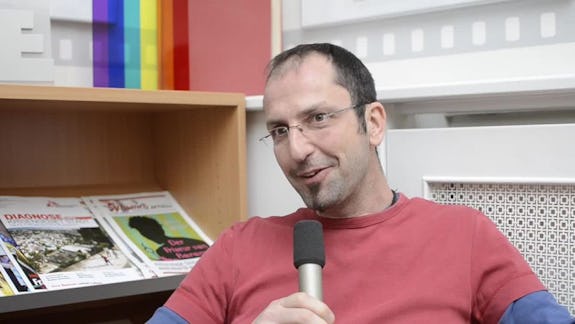
Andreas Pech
“Meine Liebe zum Reisen, meine Liebe zu fremden Kulturen und meine Liebe zur Neugier hat mich zu Ärzte ohne Grenzen gebracht.” Andreas Pech ist selbstständiger Unternehmensberater und für Ärzte ohne Grenzen als Logistiker und Administrator auf Einsatz. “Es geht darum Dinge möglich zu machen, um im Hintergrund ärztliche Hilfeleistung zu ermöglichen.”
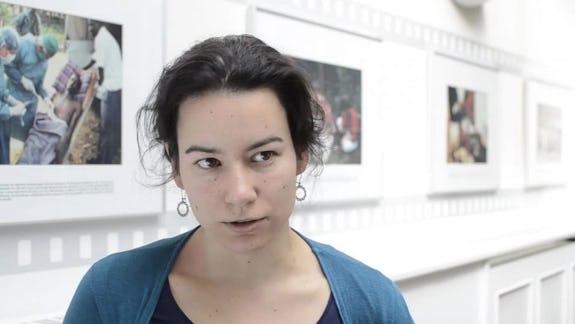
Caroline Koberg
“Das Coolste ist, dass man sofort sieht, was man tut und sehr viel zurückkriegt. Ich merke, dass ich etwas bewirken kann.” Für Ärzte ohne Grenzen war die Hebamme Caroline Koberg schon in Mosambique, Uganda, Sambia, Nigeria, Kongo und im Sudan im Einsatz. Neben der Geburtshilfe geört auch die Versorgung von HIV-Patienten zu ihren Aufgaben.
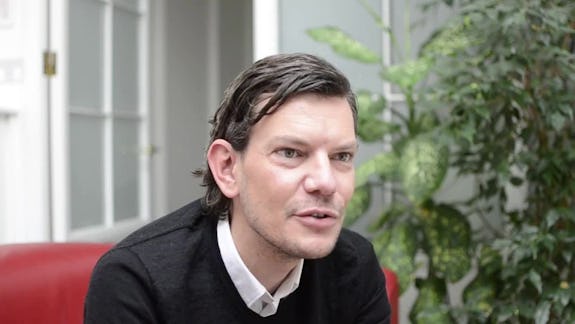
Michael Osti
“Man kann von dem zufälligen Glück, das man hat, etwas an andere weitergeben.” Michael Osti war als Unfallchirurg für “Ärzte ohne Grenzen” bereits in Nigeria und Afghanistan im Einsatz. Was er seinem 14-jährigen Ich rät? “Wenn du etwas suchst und glaubst es nicht zu finden, besitzt du es möglicherweise schon!”
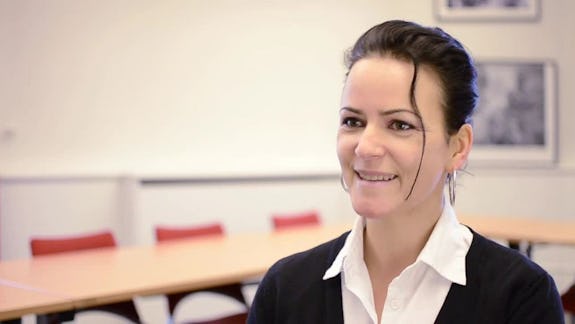
Margareta Ahrer
"One day I heard an appeal on television: MSF was looking for doctors, nurses and labtechs. I thought: Labtech? Oh yeah, thats me! Great!” Margareta Ahrer is working as a laboratory technician for Doctors Without Borders. When she was in Asia she discovered, that she really likes to work in different countries and one thing led to the other. “Now I am back in Austria to get my feet back on the ground a little bit, but I miss the field a little bit, I do.”
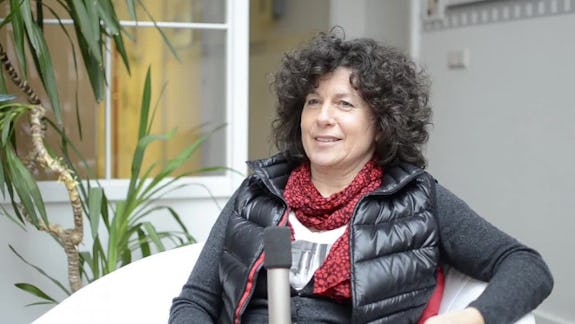
Maria Feytl
“Ich war das erste Mal ein halbes Jahr in Äthiopien, dann im Tschad, dann im Niger und voriges Jahr auf einem kurzen Emergency-Einsatz im Kongo.” Maria Feytl ist Coach, Trainerin und Mediatorin. Für Ärzte ohne Grenzen hat sie als Administratorin gearbeitet und dafür ihre alten Job aufgegeben. “Das Coolste ist als Nicht-Mediziner mit ÄOG auf Einsatz gehen zu können und zu sehen, dass wir dort wirklich einen Unterschied machen.”
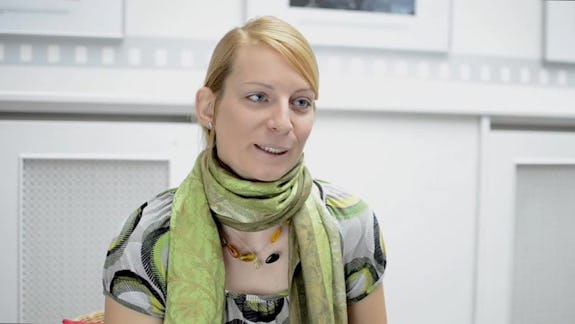
Jana Skaroupkova
“The Pharmacist has kind of a supportive role for the medical stuff, that needs to treat the patients”, Jana Skaroupkova tells about her job at Medecins sans Frontieres. She works in different projects, that usually require her work for six months. The challenges about it? “If you spend half a year somewhere out of your home, it’s always difficult to actually establish a home there. In some of the projects, we can not even leave the place, where we stay.”
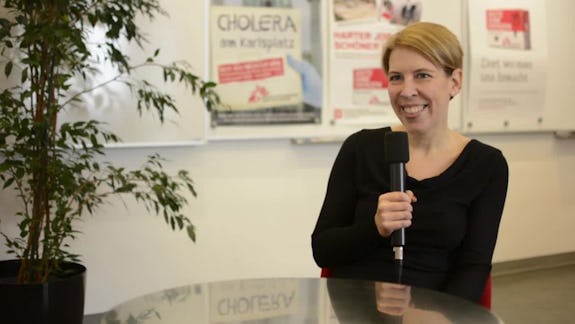
Verena Seidler
“Immer seinen eigenen Weg zu gehen und zu schauen, dass man durchaus auch seinen Kopf durchsetzen kann”, würde Verena Seidler ihrem 14-jährigen Ich als Tipp mitgeben. “Mein Job prinzipiell als Geburtshelfer ist ein sehr schöner, weil man bringt Leben auf die Welt, das ist immer schön”, zieht die Gynäkologin bei Ärzte ohne Grenzen das positive Resümme.
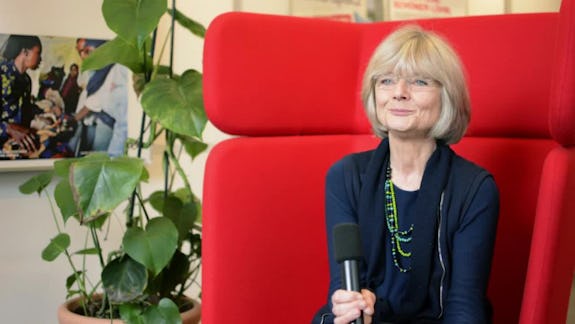
Gudrun Waldner
“Dass wir lernen, dass die Bedürfnisse, die wir landläufig in unseren Breiten haben, gar nicht wirklich zur Glückseligkeit beitragen müssen und dass man mit ganz wenig im Leben auskommen kann, ohne deswegen unzufrieden zu sein”, das hat Gudrun Waldner in ihrer Tätigkeit als Kinderärztin bei Ärzte ohne Grenzen besonders beeindruckt. “Schau auch über den Tellerrand!”, rät sie daher.
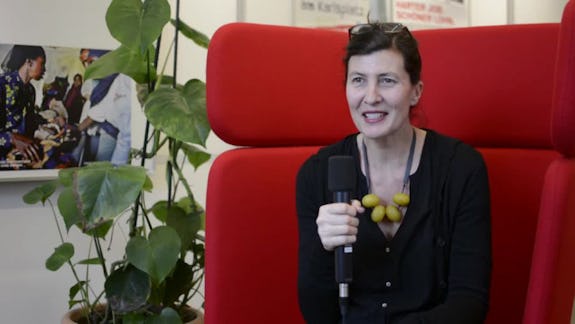
Doris Burtscher
“Ich sehe, wie die Menschen, die zu uns ins Krankenhaus oder zu unseren Institutionen kommen, leben und woher sie kommen”, erzählt Doris Burtscher über ihre Arbeit als Anthropologin bei Ärzte ohne Grenzen. “Wir haben sehr oft die Situation, dass Menschen zum traditionellen Heiler gehen und manchmal passiert es, dass sie dann zu spät in die Krankenstation kommen”, berichtet sie.
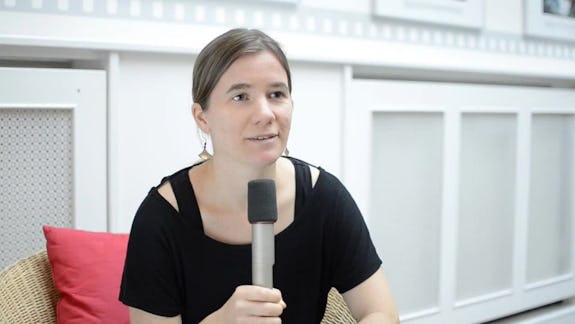
Conny Welte
“Ich habe in Kamerun ein soziales Jahr gemacht und dort für ein Buschspital gearbeitet.” Conny Welte wird ihrem Nachnamen gerecht und kommt in der Welt herum. Die Krankenschwester arbeitet seit 2010 bei Ärzte ohne Grenzen und war bereits auf ihrem fünften, aber nicht letzten Einsatz. “Mein letzter Einsatz war in Sierra Leone, das war ein großes Kinderspital.”
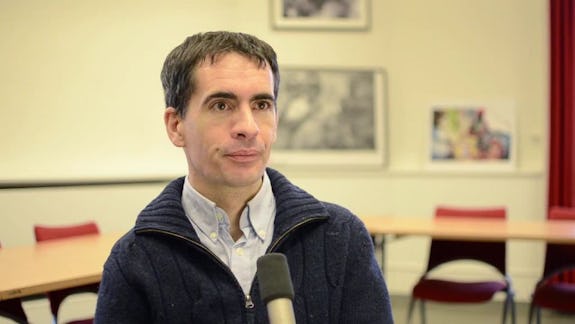
Bernard Jorrot
“Water is life. I wanted to bring water to people who need water.” As Water and Sanitation Specialist Bernard Jorrot takes care of hygiene and water supply in refugee camps and hospitals in crisis regions. “What I like most is to see the kids laughing. You see people, who have lost everything. When you bring them fresh water to drink, the kids start to play and are very happy.”
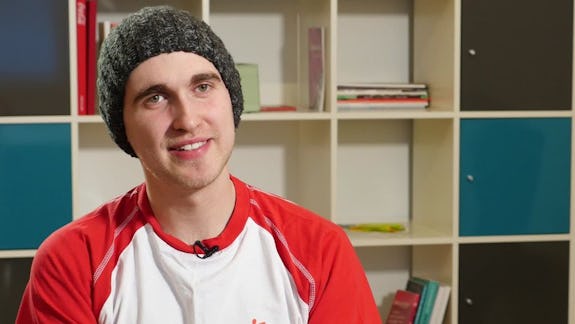
Philipp Schimanowa
"Am Besten gefällt mir, dass das Team durchweg aus coolen Leuten besteht" sagt Philipp Schimanowa, Campaigner und Teamleiter Fundraising für Ärzte ohne Grenzen. Er findet es toll einen sinnvollen Job zu haben, bei dem "du den Grundstein für den Einsatz der Ärzte in Krisengebieten legst, indem du hilfst die finanziellen Mittel bereit zu stellen".
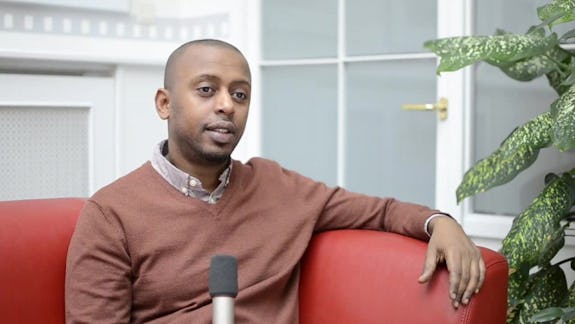
Hassan Mugne
“I was working in a city with 46.000 inhabitants and I was the only doctor.” Apart from giving medical treatment, Hassan Mugne trained medical staff and managed the medical support on his mission. During the civil war in Somalia he was forced to leave and came to Austria seeking for asylum. “I am a person who is dedicated to give back. Working with MFS gives me this opportunity.”
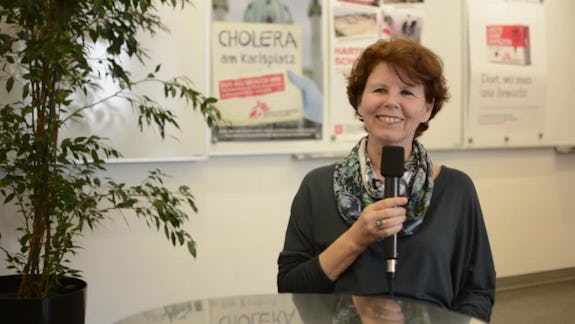
Margaretha Maleh
“Für mich ist eine der größten Einschränkungen immer die Sprache, weil mein Beruf stark von der Sprache lebt und jede Übersetzung verändert”, berichtet Psychotherapeutin Margaretha Maleh über ihre Auslandserfahrungen bei Ärzte ohne Grenzen. Was sie als Arbeitswerkzeug braucht? “Meinen Verstand, meine Augen, meine Ohren, meine Gefühle, meine Sprache.”
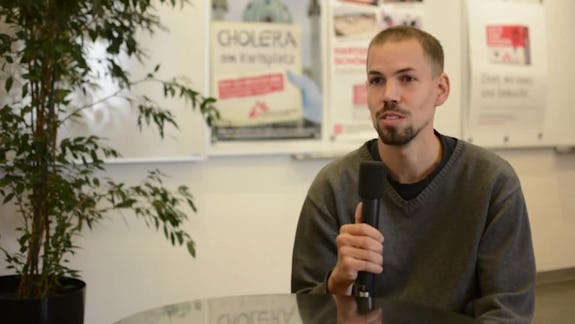
Stefan Schwaiger
“Im Einsatz stößt man immer an seine Grenzen und man kann einiges mit nach Hause nehmen”, erzählt Stefan Schwaiger über seine Erfahrungen bei Ärzte ohne Grenzen. “Dort wo die medizinische Hilfe aufhört, fängt der Logistiker an zu arbeiten”, verrät er über sein Aufgabenverständnis.
